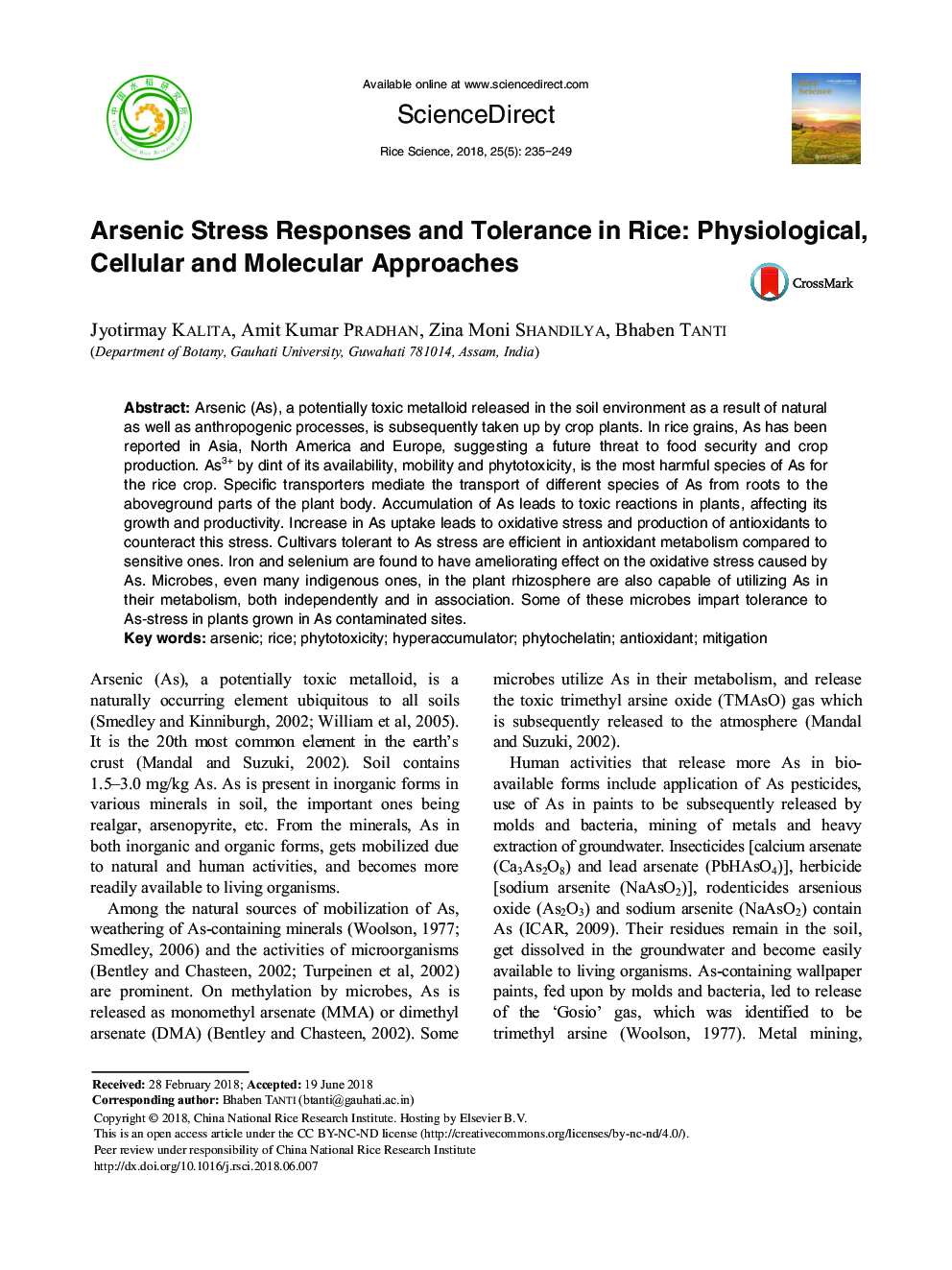| کد مقاله | کد نشریه | سال انتشار | مقاله انگلیسی | نسخه تمام متن |
|---|---|---|---|---|
| 8959368 | 1646310 | 2018 | 15 صفحه PDF | دانلود رایگان |
عنوان انگلیسی مقاله ISI
Arsenic Stress Responses and Tolerance in Rice: Physiological, Cellular and Molecular Approaches
ترجمه فارسی عنوان
پاسخ های استرس آرسنیک و تحمل در برنج: رویکردهای فیزیولوژیکی، سلولی و مولکولی
دانلود مقاله + سفارش ترجمه
دانلود مقاله ISI انگلیسی
رایگان برای ایرانیان
کلمات کلیدی
موضوعات مرتبط
علوم زیستی و بیوفناوری
علوم کشاورزی و بیولوژیک
علوم کشاورزی و بیولوژیک (عمومی)
چکیده انگلیسی
Arsenic (As), a potentially toxic metalloid released in the soil environment as a result of natural as well as anthropogenic processes, is subsequently taken up by crop plants. In rice grains, As has been reported in Asia, North America and Europe, suggesting a future threat to food security and crop production. As3+ by dint of its availability, mobility and phytotoxicity, is the most harmful species of As for the rice crop. Specific transporters mediate the transport of different species of As from roots to the aboveground parts of the plant body. Accumulation of As leads to toxic reactions in plants, affecting its growth and productivity. Increase in As uptake leads to oxidative stress and production of antioxidants to counteract this stress. Cultivars tolerant to As stress are efficient in antioxidant metabolism compared to sensitive ones. Iron and selenium are found to have ameliorating effect on the oxidative stress caused by As. Microbes, even many indigenous ones, in the plant rhizosphere are also capable of utilizing As in their metabolism, both independently and in association. Some of these microbes impart tolerance to As-stress in plants grown in As contaminated sites.
ناشر
Database: Elsevier - ScienceDirect (ساینس دایرکت)
Journal: Rice Science - Volume 25, Issue 5, September 2018, Pages 235-249
Journal: Rice Science - Volume 25, Issue 5, September 2018, Pages 235-249
نویسندگان
Jyotirmay Kalita, Amit Kumar Pradhan, Zina Moni Shandilya, Bhaben Tanti,
